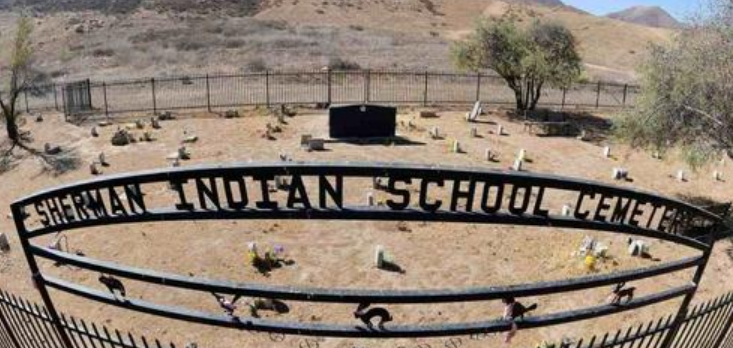
- Details
- By Native News Online Staff
Delegates to the California-Nevada United Methodist Church’s 137th Annual Conference to be held at the end of October will be asked to pass a resolution (Resolution #21) addressing the United Methodist Church’s role in operating Indian boarding schools in their diocesan district.
The resolution was developed after the discovery of hundreds of graves at several Indian residential schools in Canada earlier this year.
Want more Native News? Get the free daily newsletter today.
Resolution #21 was authored and submitted by Douglas P. Sibley, a member of the California-Nevada United Methodist Conference’s Committee of Race and Religion.
The resolution requests that the leadership of the California-Nevada Conference of the United Methodist Church (UMC) seek guidance and funding to review each former Methodist boarding school site in the conference area for marked and unmarked graves of Native children in preparation for repatriation consistent with Native American Graves Protection and Repatriation Act (NAGPA).
During a pre-conference gathering on August 3, 2021, legislation delegates voted to support and pass Resolution #21.
Sibley feels the resolution will begin the process of repentance, reconciliation, and healing with California and Nevada tribal communities, whose members were subjected to the church’s boarding schools.
Sibley is a member of the United Urban Warrior Society-California Chapter. He solicited the assistance of Mike Raccoon Eyes Kinney (Cherokee), national vice president of the United Urban Warrior Society, to advocate on the resolution’s passage.
“The Methodists were complicit in carrying out policies of cultural genocide. The serial trauma are now realities to Native American communities. The abuse of those who attended the boarding schools, many of whom are now our community elders, has filtered down to their children and grandchildren,” Kinney said.
"The repercussions still being manifested throughout tribal communities in California and Nevada as a result of boarding school policies cannot be overestimated,” Kinney said.
In 2012, the United Methodist General Conference, the national governing body of the church, passed a resolution that called for an “act of repentance toward healing relationships with Indigenous people.”
In 2016, the UMC General Conference adopted an omnibus resolution on “Native People and the United Methodist Church,” drafted by Native members, that specified the forcing of young people into boarding schools as an example of offense. The resolution states:
“Government and religious institutions intentionally destroyed many of our traditional cultures and belief systems. To assimilate our peoples into mainstream cultures, many of our ancestors as children were forcibly removed to boarding schools, often operated by religious institutions, including historical Methodism.”
More Stories Like This
Native News Weekly (August 25, 2024): D.C. BriefsDeb Haaland Rolls Out Affordability Agenda in Albuquerque
Boys & Girls Clubs and BIE MOU Signing at National Days of Advocacy
National Congress of American Indians Mourns the Passing of Former Executive Director JoAnn K. Chase
Navajo Nation Mourns the Passing of Former Vice President Rex Lee Jim
Help us defend tribal sovereignty.
At Native News Online, our mission is rooted in telling the stories that strengthen sovereignty and uplift Indigenous voices — not just at year’s end, but every single day.
Because of your generosity last year, we were able to keep our reporters on the ground in tribal communities, at national gatherings and in the halls of Congress — covering the issues that matter most to Indian Country: sovereignty, culture, education, health and economic opportunity.
That support sustained us through a tough year in 2025. Now, as we look to the year ahead, we need your help right now to ensure warrior journalism remains strong — reporting that defends tribal sovereignty, amplifies Native truth, and holds power accountable.
 The stakes couldn't be higher. Your support keeps Native voices heard, Native stories told and Native sovereignty defended.
The stakes couldn't be higher. Your support keeps Native voices heard, Native stories told and Native sovereignty defended.
Stand with Warrior Journalism today.
Levi Rickert (Potawatomi), Editor & Publisher

